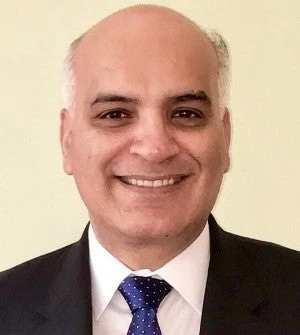 A beneficiary receiving cash payment in Gitega. Photo: World Bank
A beneficiary receiving cash payment in Gitega. Photo: World Bank
The Cash4Jobs Project known as Merankabandi ("be like others" in the local language) is more than just a project in Burundi—it has profoundly changed the lives of more than 1 million people through regular cash transfers. This project is a beacon of hope in a world grappling with poverty and inequality.
Take the story of one beneficiary, Thérèse Irankunda, a 43-year-old mother of ten from Gitega province. She recalls, “I am no longer identified as indigenous; the project transformed my life. My child was stunted before the project; my family had no source of income, but thanks to regular cash transfers, my child is now healthy, and I look beautiful in my clean clothes.” Thérèse's journey from hardship to dignity shows the power of direct financial support.
She shared her life-changing experience with us and a delegation of nine World Bank Group Executive Directors who visited to witness the project’s impact. We traveled to Gitega province in Burundi, where the project currently reaches 7,000 households and benefits about 35,000 individuals. This visit marked a continuation of the project's pilot phase, which began there in 2017.
The Merankabandi Project is part of the broader Social Safety Nets Project for Burundi, which aims to provide regular digital cash transfers to impoverished and vulnerable households with children, while strengthening the delivery systems for social safety nets. The project has built a robust support system for these cash transfers, including a database to track beneficiaries, systems to monitor progress, and checks to measure success. The system is composed of four main modules which manage the project’s data collection, cash transfer payments, monitoring and evaluation, and grievance redress mechanisms (GRM). The government is investing in an upgrade to allow interoperability with partner’s systems for better coordination. The government is also working on data sharing and data protection protocols for a transition to a unified national social registry which will serve as a national platform for social interventions in the country.
Training local teams is a crucial part of effectively implementing the national social protection plan. As the program expands at the national level, training efforts have strengthened the capacity of roughly 20,000 community members. They provide regular coaching to women beneficiaries and ensure they are properly investing money received from the project, while collecting monitoring and evaluation data on beneficiaries.
On our visit, discussions with beneficiaries revealed that consistent cash transfers over a 24-month period facilitated their access to essential goods and services, such as food, clothing, agricultural inputs, education costs, healthcare, housing repairs, and small business startup capital. Such is the case of Manirakiza Goreth, a 40-year-old mother of two. While holding her three-year-old boy, she explained that he was malnourished before the project. “I was gaining a minor daily fee [of around $1] against my labor force which couldn’t feed my two kids. But now, my children can eat well, the youngest recovered from stunting, and the oldest has been enrolled at school. He is in grade two. I couldn’t afford school materials before this.” She has also been able to rent a plot for agriculture, purchase seeds, and acquire two pigs and two goats. With a smile on her face, she stated that she is actually contributing to the local economy through taxes from her transactions while strengthening her resilience.
Beneficiaries emphasized the Merankabandi transformative effects on women’s empowerment and digital inclusion. Women targeted by the project have received a mobile phone that allows easy access to a reliable cash transfer mechanism and has helped their integration into the digital economy. This approach is helping counter discriminatory social norms, reduces gender-based violence, and enhances women's economic empowerment.
Mr. Tauqir Shah, ED and spokesperson of the delegation, underscored the World Bank’s continued partnership with the Government of Burundi and their shared commitment to strengthen human capital development through programs like Merankabandi and a recent emergency response to address the welfare impacts of an El Niño crisis, which disproportionately affects the poor and vulnerable. This commitment reassures us of the project's future and its potential to make a lasting impact.

Besides economic empowerment, the project contributed to social inclusion of indigenous communities called Batwa and helped them recover their dignity. Besides Thérèse, another group of 30 Batwa beneficiaries from the project's pilot phase was trained in modern handicraft activity. The group was able to start production of pottery items and decorative objects and to sustain this investment, the local administration allocated a sales outlet to market their products. Such assistance to start and sustain livelihoods is making a difference.
The Merankabandi Project shows how targeted cash transfers can lead to significant socio-economic improvements. Focusing on women and marginalized communities, the project addresses immediate needs and lays the groundwork for sustainable development. An additional $50 million was recently approved by the World Bank to continue support of the project, bringing the total investment to $200 million. The success of beneficiaries like Thérèse Irankunda and Manirakiza Goreth illustrates the project's potential for lasting change and serves as a model for similar initiatives in Africa and for the world.




Join the Conversation